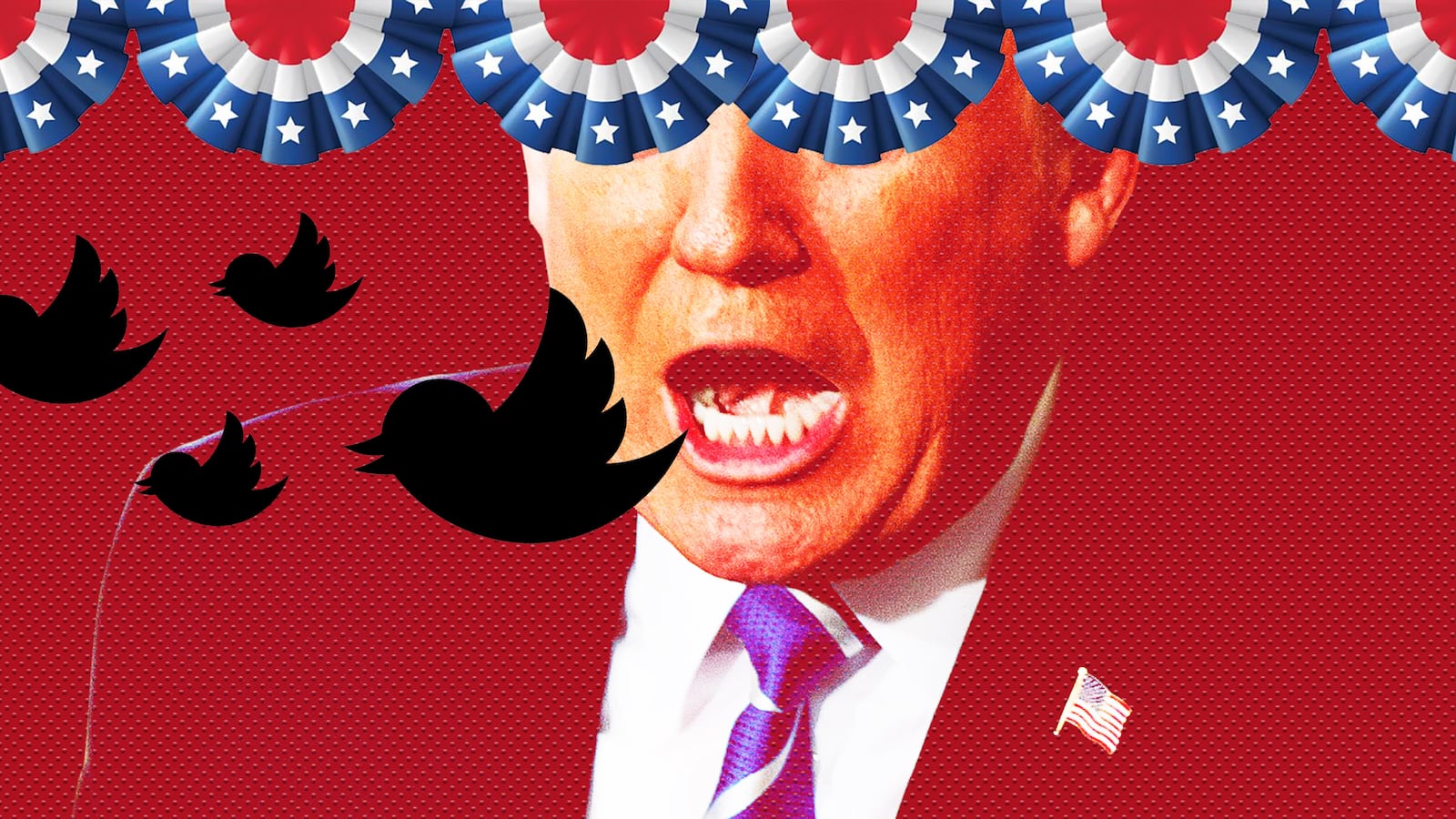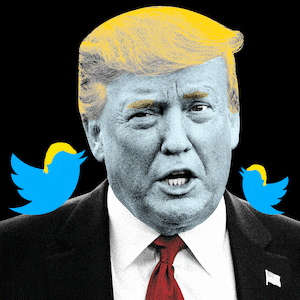Donald Trump’s Twitter habit has caused no shortage of controversy during his presidency. Now, Democrats are hoping to turn it into a liability for his re-election.
One of the party’s top think tanks has been privately encouraging lawmakers and candidates to attack the president for failing to deliver on the promises he made because he’s too consumed by social media. It is, undoubtedly, the first case of a campaign tactic geared towards turning a president’s online behavior into a liability; though rarely has a president’s reliance on—and use of—a media bullhorn been such a defining personality trait. Those pushing it have offered new polling data to bolster the idea that the argument will move voters.
About two months ago, the Center for American Progress Action Fund commissioned the firm Civis to test messaging that framed Trump not as corrupt or unethical but as “ineffective”—and to attribute that ineffectiveness to his being absorbed by his Twitter feed. The results were notable. Of the six messages tested on Trump, the idea that he was “more focused on his Twitter account than on delivering on his promises” was the only one that consistently moved the vote towards Democrats, including among Obama-Trump voters.
Soon after the Civis study was commissioned, top officials in the party began pushing the line.
“We’ve seen this act before and we have to make sure that the public sees the sharp contrast between getting something done,” House Speaker Nancy Pelosi (D-CA) said in a press availability after Trump’s campaign kickoff in early June. “The one word I would use to describe him now after hearing that yesterday is ineffective.”
Though CAP too has begun attacking Trump over his Twitter habits, not everyone in the party has rushed to adopt the framing, for fear that it merely goes after the medium on which Trump expresses his bluster and bigotry, and not the bluster and bigotry itself. After the president called on Rep. Ilhan Omar (D-MN) to go back to her country (she’s a U.S. citizen who was born in Somalia), Pelosi called the president's comments racist but encouraged her members to label him as ineffective. Aides flagged the Speaker’s comments for HuffPost, apparently confused why the party wouldn’t directly attack Trump’s clearly racist remarks.
Those who have worked on the messaging say that going after Trump for being a racist and for being distracted by Twitter to the point of ineffectiveness is not an either-or. But, they argue, the former comes with the risk of turning off his supporters by suggesting that they are comfortable with his worst traits, while the latter emphasizes a characteristic of Trump that virtually no one finds flattering.
“I think only the hardest core Trump believers think he should spend more time on Twitter. But that is the reality of his presidency. For better or worse people think he spends most of his time on Twitter and the way he engages on it is mostly negative,” said Navin Nayak, executive director of the Center for American Progress Action Fund. “Juxtaposing that becomes a very powerful way of underscoring how he has not accomplished anything economically for the American people. Going after that is an effective way of attacking Trump without impugning the motives of anyone who voted for him.”
Nayak’s point is underscored by polling that was done by the firm Navigator in mid-July. The study found that on a number of issues, a large swath of voters didn’t believe Trump had kept or was working to keep his campaign promises. But it was when respondents were asked why they believe the president was falling short on those promises that things got interesting. Fifty percent of voters felt like he wasn’t keeping his promises because he was getting “distracted by other unimportant priorities like petty disagreements and Twitter,” including 65 percent of Democrats and 60 percent of Independents. It was the highest polling response. Forty-four percent said that Trump “never intended to keep” his promises, but just 35 percent of Independents said they felt that way.
“This is where Democrats have a huge opportunity. The thing everyone hears about Donald Trump more than anything else is that he is on Twitter all day. That’s what they hear. If they want to know what he is doing all day that’s what they hear,” said Nayak. “We aren’t making a moral judgment by saying it. We are pointing to a factual reality.”
Nayak said that both he and CAP have been pushing out the findings to as many folks as possible in hopes that the party keeps hitting on the failed-to-deliver, distracted-by-Twitter theme. But the plan comes with one glaring risk. What if Trump were simply to stop using Twitter?
“I will take my chances,” said Nayak. “There is no chance [he kicks the habit]. He doesn’t know how to communicate any other way.”







